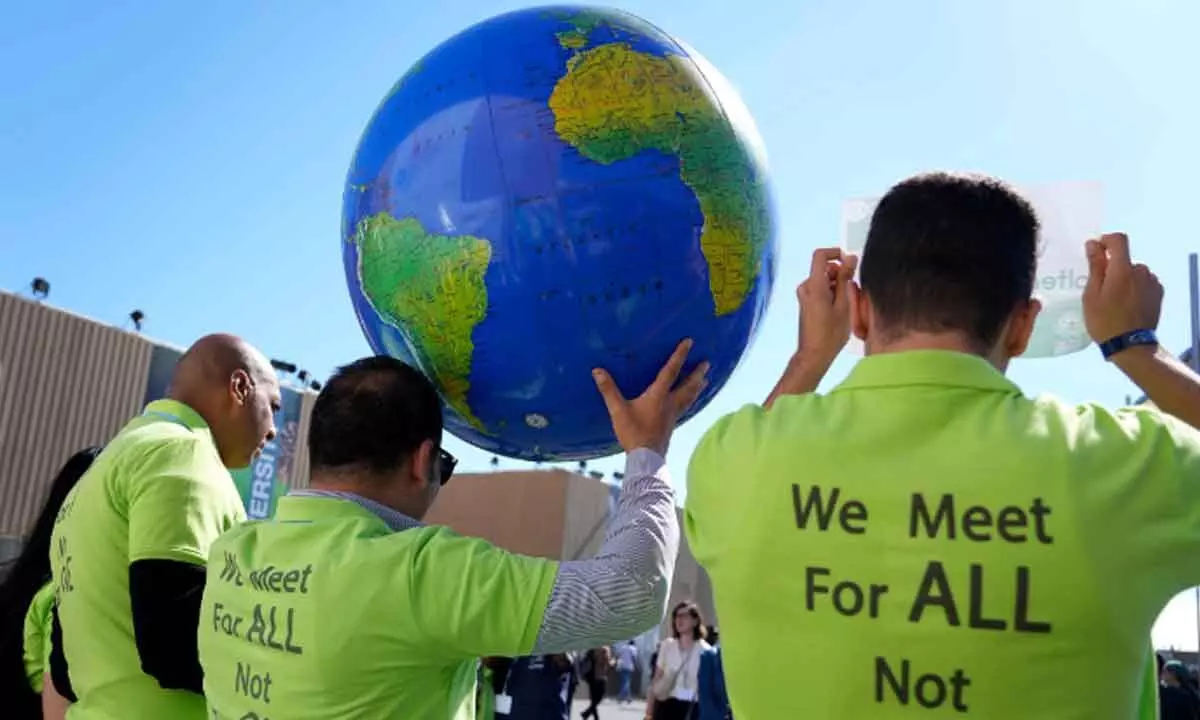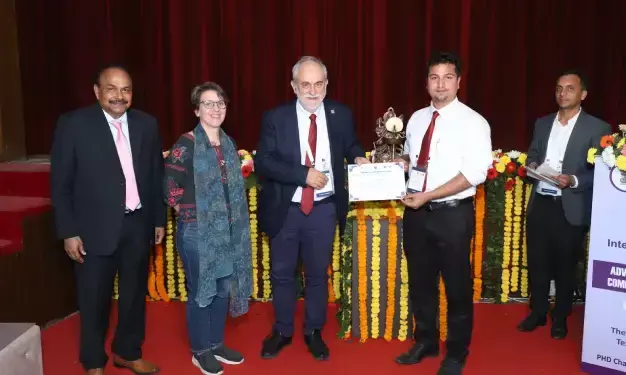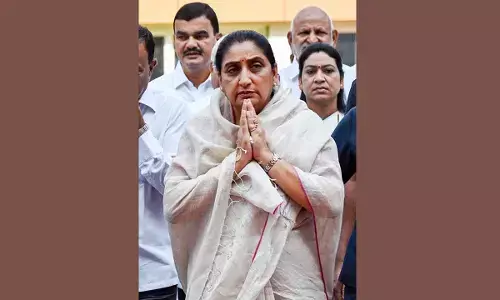India insists on 2024 global climate finance goal

Developing countries require "substantive enhancement" in climate finance from the floor of USD 100 billion per year to meet their ambitious goals and rich countries need to lead the mobilisation of resources, India has stressed at the ongoing UN climate summit COP27.
New Delhi: Developing countries require "substantive enhancement" in climate finance from the floor of USD 100 billion per year to meet their ambitious goals and rich countries need to lead the mobilisation of resources, India has stressed at the ongoing UN climate summit COP27.
At COP15 in Copenhagen in 2009, developed countries had committed to jointly mobilise USD 100 billion per year by 2020 to help developing countries tackle the effects of climate change. Rich countries, however, have repeatedly failed in delivering this finance. Developing countries, including India, are pushing rich countries to agree to a new global climate finance target -- also known as the new collective quantified goal on climate finance (NCQG) -- which they say should be in trillions as the costs of addressing and adapting to climate change have grown.
At a high-level ministerial dialogue on NCQG at COP27 on Wednesday, India highlighted that climate actions to meet the Nationally Determined Contributions' (NDC) targets require financial, technological, and capacity-building support from developed countries, people aware of the developments said.
Citing the work of the Intergovernmental Panel on Climate Change (IPCC), India said rich countries are the major contributors to the carbon stock in the atmosphere, clearly underlying the importance of the core principles of the UNFCCC and its Paris Agreement -- equity and Common but Differentiated Responsibilities and Respective Capabilities (CBDR-RC). CBDR-RC acknowledges the different capabilities and differing responsibilities of individual countries in addressing climate change. "As such, the provisions and principles of the convention and its Paris Agreement should guide the discussions and outcomes of the NCQG to ensure an equitable result that enables climate action in developing countries," it said.
"The ambitious goal set down by the developing countries requires substantive enhancement in climate finance from the floor of USD 100 billion per year. The mobilisation of the resources needs to be led by the developed countries and should be long-term, concessional, and climate-specific with equitable allocation between adaptation and mitigation projects," the Indian delegation said during the meeting.
"The commitment of USD 100 billion made in 2009 by developed countries was not only minuscule given the scale of needs but has also not been achieved yet," it said. According to data from the Organisation for Economic Co-operation and Development (OECD), an intergovernmental body consisting of wealthy nations, developed countries mobilised USD 52.5 billion in 2013. After dropping to USD 44.6 billion in 2015, the finance flow has steadily increased.
In 2020, the developed countries raised USD 83.3 billion, a jump from USD 80.4 billion in 2019, according to a fact sheet published by the Centre for Science and Environment.
The Standing Committee on Finance has estimated that resources in the range of USD 6 trillion to USD 11 trillion are required till 2030 to meet the targets set by developing countries in their NDCs and other communications including the Needs Determination Reports.











